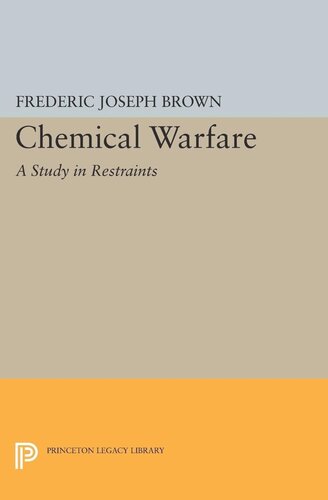

Most ebook files are in PDF format, so you can easily read them using various software such as Foxit Reader or directly on the Google Chrome browser.
Some ebook files are released by publishers in other formats such as .awz, .mobi, .epub, .fb2, etc. You may need to install specific software to read these formats on mobile/PC, such as Calibre.
Please read the tutorial at this link: https://ebookbell.com/faq
We offer FREE conversion to the popular formats you request; however, this may take some time. Therefore, right after payment, please email us, and we will try to provide the service as quickly as possible.
For some exceptional file formats or broken links (if any), please refrain from opening any disputes. Instead, email us first, and we will try to assist within a maximum of 6 hours.
EbookBell Team

4.8
94 reviewsWhy would a nation, in the midst of a vicious and unrestricted war, hesitate to employ a weapon guaranteed to inflict massive casualties on the enemy? Major Frederic Brown offers here the first critical analysis of this curious World War II phenomenon. He investigates the nature of restraints-political, military, economic, and psychological-operative in varying degrees between 1919 and 1945, when U.S. chemical warfare policy was being formed. Starting with the experiences of toxic agent use during World War I, Major Brown shows how various restraints to gas warfare developed during the inter-war years. He then discusses the World War II experience. In the conclusion Major Brown relates his findings to contemporary conflicts and offers important implications for the future of the cold war.
Originally published in 1968.
The Princeton Legacy Library uses the latest print-on-demand technology to again make available previously out-of-print books from the distinguished backlist of Princeton University Press. These editions preserve the original texts of these important books while presenting them in durable paperback and hardcover editions. The goal of the Princeton Legacy Library is to vastly increase access to the rich scholarly heritage found in the thousands of books published by Princeton University Press since its founding in 1905.